-
 Bitcoin
Bitcoin $111100
0.49% -
 Ethereum
Ethereum $4304
0.21% -
 XRP
XRP $2.888
2.36% -
 Tether USDt
Tether USDt $0.9999
-0.03% -
 BNB
BNB $879.1
1.62% -
 Solana
Solana $207.9
2.67% -
 USDC
USDC $0.9998
-0.01% -
 Dogecoin
Dogecoin $0.2320
7.05% -
 TRON
TRON $0.3306
0.59% -
 Cardano
Cardano $0.8407
1.68% -
 Hyperliquid
Hyperliquid $48.50
3.55% -
 Chainlink
Chainlink $22.52
0.46% -
 Ethena USDe
Ethena USDe $1.001
-0.02% -
 Sui
Sui $3.395
0.74% -
 Bitcoin Cash
Bitcoin Cash $602.5
0.82% -
 Stellar
Stellar $0.3645
1.67% -
 Avalanche
Avalanche $24.82
0.93% -
 Hedera
Hedera $0.2211
0.99% -
 UNUS SED LEO
UNUS SED LEO $9.606
0.00% -
 Cronos
Cronos $0.2583
-2.44% -
 Litecoin
Litecoin $113.7
0.82% -
 Toncoin
Toncoin $3.094
0.39% -
 Shiba Inu
Shiba Inu $0.00001254
1.50% -
 Polkadot
Polkadot $4.040
4.96% -
 Uniswap
Uniswap $9.429
0.08% -
 Dai
Dai $0.9999
-0.01% -
 Ethena
Ethena $0.7629
3.04% -
 World Liberty Financial
World Liberty Financial $0.2111
-13.16% -
 Monero
Monero $269.9
0.50% -
 Aave
Aave $300.9
-0.41%
What is the importance of a private key in cryptocurrency?
Losing your cryptocurrency's private key means irreversible loss of access to your funds; it's the sole authorization for blockchain transactions, and securing it—whether via mnemonic phrase, keystore file, or hardware wallet—is paramount.
Mar 14, 2025 at 10:55 pm
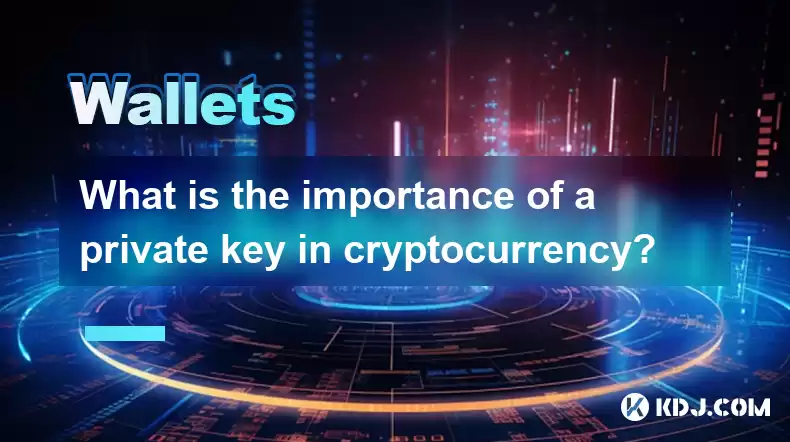
- Private keys are the sole means of controlling and accessing your cryptocurrency. Without it, your funds are irretrievably lost.
- They function as a mathematical proof of ownership, allowing you to authorize transactions on the blockchain.
- The security of your private key is paramount; its compromise leads to the immediate loss of your cryptocurrency.
- Private keys exist in various forms, including mnemonic phrases, keystore files, and hardware wallets. Understanding these differences is crucial for security.
- Losing or forgetting your private key is equivalent to losing access to your cryptocurrency; there's no recovery mechanism.
In the decentralized world of cryptocurrency, the private key reigns supreme. It's the single most crucial element in securing and managing your digital assets. Think of it as the ultimate password, the key to your digital vault. Without it, you have no access to your cryptocurrency, regardless of how much you hold. Its importance cannot be overstated.
How Does a Private Key Work?Cryptocurrency transactions are verified and recorded on a public blockchain. However, the process of authorizing these transactions relies on the private key. When you initiate a transfer, your wallet software uses your private key to create a digital signature. This signature, unique to your key, proves your ownership and authorizes the transaction to be added to the blockchain. The public key, derived from the private key, verifies the signature.
Why is Security of My Private Key So Important?The security of your private key is paramount. If someone gains access to your private key, they gain complete control over your cryptocurrency. This is because they can then sign transactions and transfer your funds to their own wallet. There's no recourse; the blockchain records the transaction as legitimate. Therefore, safeguarding your private key is non-negotiable.
What Forms Do Private Keys Take?Private keys aren't always simple strings of characters. They manifest in various forms, each with its own security implications:
- Mnemonic Phrase (Seed Phrase): This is a list of 12-24 words that can be used to regenerate your private keys. It's crucial to store this phrase securely, offline and ideally in a physical, tamper-proof location.
- Keystore File: This is an encrypted file containing your private key. It usually requires a password for access. The security of this file depends entirely on the strength of your password and the security of its storage location.
- Hardware Wallet: These devices store your private keys offline, offering the highest level of security. They are physically separate from your computer, preventing malware attacks.
Losing your private key is akin to losing your money. There is no centralized authority or customer support team that can retrieve your funds. The blockchain is immutable, and without the correct private key to authorize transactions, your cryptocurrency is irretrievably lost. This underscores the critical importance of backing up your keys and practicing secure storage techniques.
How Can I Secure My Private Key?Security practices surrounding your private key should be your top priority. Consider these steps:
- Use a Hardware Wallet: These provide the highest level of security by keeping your keys offline.
- Avoid Sharing Your Private Key: Never share your private key with anyone, under any circumstances. Legitimate services will never ask for your private key.
- Use Strong Passwords: If using software wallets, employ strong, unique passwords.
- Regularly Back Up Your Keys: Use multiple secure methods to back up your private keys, including physical copies and encrypted digital backups.
- Keep Your Software Updated: Ensure your wallet software and operating systems are up-to-date to patch security vulnerabilities.
- Be Wary of Phishing Scams: Be vigilant against phishing attempts designed to steal your private key.
While the underlying cryptographic principles are similar, the specific implementation of private keys varies slightly depending on the cryptocurrency and wallet used. There isn't a fundamental difference in their core function; they all serve the same purpose of authorizing transactions. However, their representation—as a mnemonic phrase, a keystore file, or within a hardware wallet— significantly impacts their security.
How can I recover my private key if I forget it?If you forget your private key, there is generally no way to recover it. The security of cryptocurrencies relies heavily on the irretrievability of private keys. This is why proper backup and storage methods are so crucial. Some wallets offer recovery options using a mnemonic phrase, but this relies on having securely stored that phrase beforehand.
Is it safe to store my private key online?Storing your private key online is extremely risky. Online storage exposes your key to various threats, including hacking, malware, and phishing attacks. It is strongly advised to store your private keys offline, using a hardware wallet or a secure physical method.
Can I transfer my cryptocurrency without my private key?No, you cannot transfer your cryptocurrency without your private key. The private key is essential for creating the digital signature that verifies your ownership and authorizes the transaction on the blockchain. Without it, the transaction cannot be processed.
What are the legal implications of losing my private key?Losing your private key has no legal ramifications in itself. It is simply a loss of access to your assets. However, depending on the circumstances surrounding the loss, there may be other legal implications to consider, such as those relating to negligence or theft if the loss was due to insecure practices.
Disclaimer:info@kdj.com
The information provided is not trading advice. kdj.com does not assume any responsibility for any investments made based on the information provided in this article. Cryptocurrencies are highly volatile and it is highly recommended that you invest with caution after thorough research!
If you believe that the content used on this website infringes your copyright, please contact us immediately (info@kdj.com) and we will delete it promptly.
- XRP Price Explosion: Riding the Cryptocurrency Wave or Just a Ripple?
- 2025-09-08 23:35:17
- BlockchainFX, Bitcoin Hyper, and Little Pepe: Which Presale is the Real Deal?
- 2025-09-08 22:30:12
- Bitcoin, Altcoins, and Smart Money: Navigating the Crypto Landscape in 2025
- 2025-09-08 23:35:17
- Eggman's Crypto Dreams: Cardano, AI, and the Wild West of 2025 Investing
- 2025-09-08 23:35:18
- WLFI Faces Investor Backlash: Can It Survive the Centralization Debate?
- 2025-09-08 23:35:18
- Eggman, Morpho Investors, and Crypto Streaming: What's the Buzz?
- 2025-09-08 22:45:14
Related knowledge
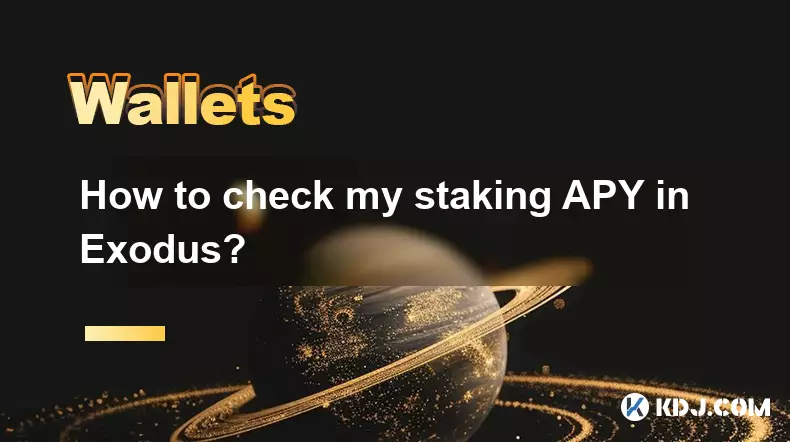
How to check my staking APY in Exodus?
Sep 08,2025 at 08:19pm
Understanding Staking APY in Exodus Wallet1. Staking APY, or Annual Percentage Yield, reflects the total return earned on a staked cryptocurrency over...
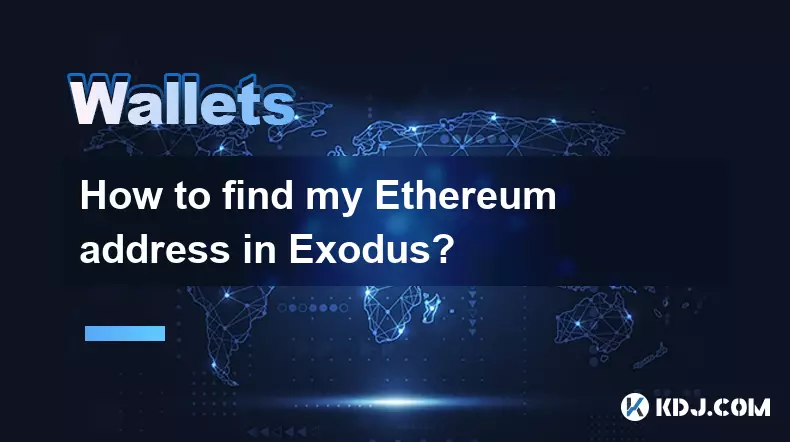
How to find my Ethereum address in Exodus?
Sep 06,2025 at 06:18pm
Accessing Your Ethereum Address in Exodus Wallet1. Launch the Exodus wallet application on your desktop or mobile device. Ensure that you have success...
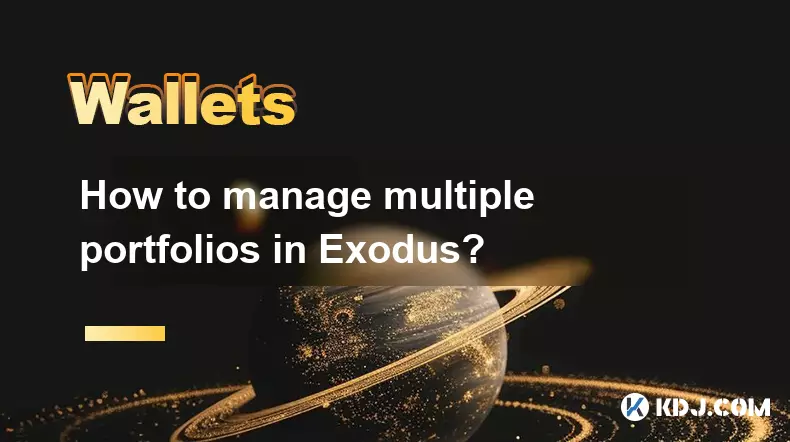
How to manage multiple portfolios in Exodus?
Sep 07,2025 at 04:00pm
Understanding Portfolio Management in ExodusExodus is a digital wallet that supports a wide range of cryptocurrencies, allowing users to store, exchan...
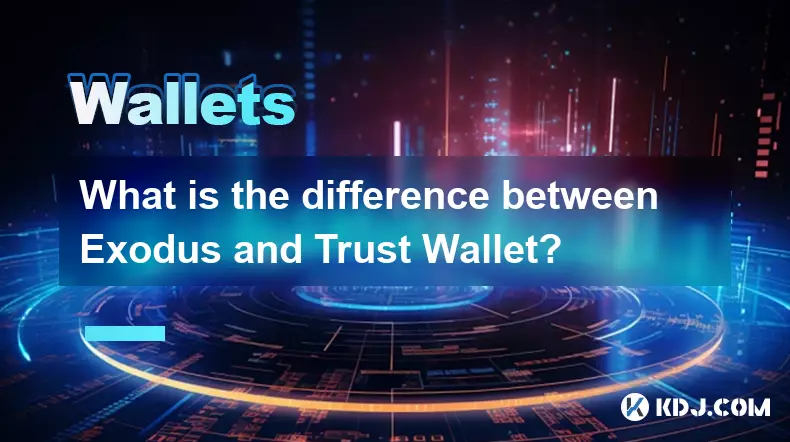
What is the difference between Exodus and Trust Wallet?
Sep 05,2025 at 05:36pm
Differences in Wallet Architecture and Design Philosophy1. Exodus operates as a multi-asset desktop and mobile wallet with an emphasis on user experie...
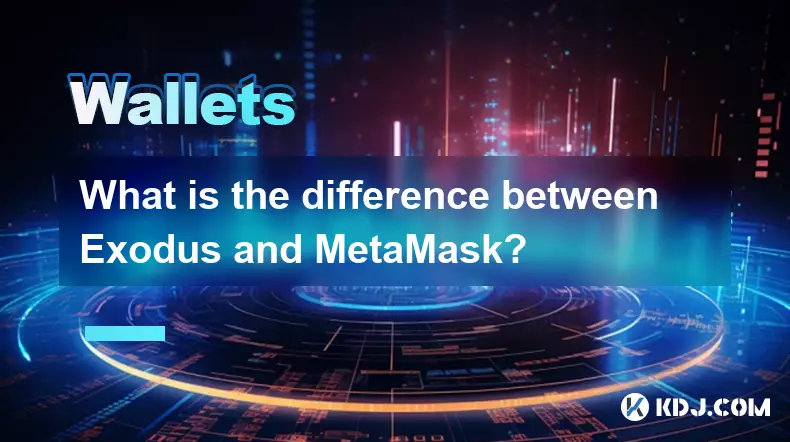
What is the difference between Exodus and MetaMask?
Sep 08,2025 at 03:01pm
Understanding the Role of Decentralized Exchanges in Modern Crypto Trading1. Decentralized exchanges (DEXs) have become a cornerstone of the cryptocur...
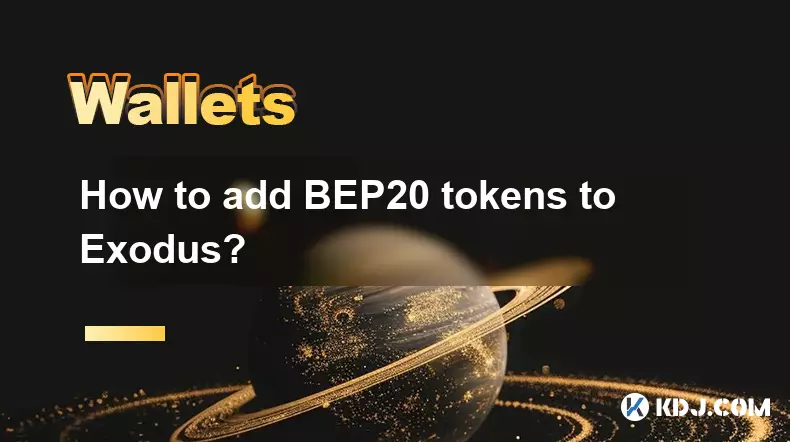
How to add BEP20 tokens to Exodus?
Sep 06,2025 at 09:36am
Understanding BEP20 Tokens and Exodus Wallet Compatibility1. BEP20 is a token standard used on the Binance Smart Chain, designed to support smart cont...

How to check my staking APY in Exodus?
Sep 08,2025 at 08:19pm
Understanding Staking APY in Exodus Wallet1. Staking APY, or Annual Percentage Yield, reflects the total return earned on a staked cryptocurrency over...

How to find my Ethereum address in Exodus?
Sep 06,2025 at 06:18pm
Accessing Your Ethereum Address in Exodus Wallet1. Launch the Exodus wallet application on your desktop or mobile device. Ensure that you have success...

How to manage multiple portfolios in Exodus?
Sep 07,2025 at 04:00pm
Understanding Portfolio Management in ExodusExodus is a digital wallet that supports a wide range of cryptocurrencies, allowing users to store, exchan...

What is the difference between Exodus and Trust Wallet?
Sep 05,2025 at 05:36pm
Differences in Wallet Architecture and Design Philosophy1. Exodus operates as a multi-asset desktop and mobile wallet with an emphasis on user experie...

What is the difference between Exodus and MetaMask?
Sep 08,2025 at 03:01pm
Understanding the Role of Decentralized Exchanges in Modern Crypto Trading1. Decentralized exchanges (DEXs) have become a cornerstone of the cryptocur...

How to add BEP20 tokens to Exodus?
Sep 06,2025 at 09:36am
Understanding BEP20 Tokens and Exodus Wallet Compatibility1. BEP20 is a token standard used on the Binance Smart Chain, designed to support smart cont...
See all articles

























![[Pycoin] PI Coin -US President (Trump) Declaration ?? !! 'US' runs first. / Paikoin mining speed acceleration [Pycoin] PI Coin -US President (Trump) Declaration ?? !! 'US' runs first. / Paikoin mining speed acceleration](/uploads/2025/09/08/cryptocurrencies-news/videos/pycoin-pi-coin-president-trump-declaration-runs-paikoin-mining-speed-acceleration/68bed38c01e7a_image_500_375.webp)






























































